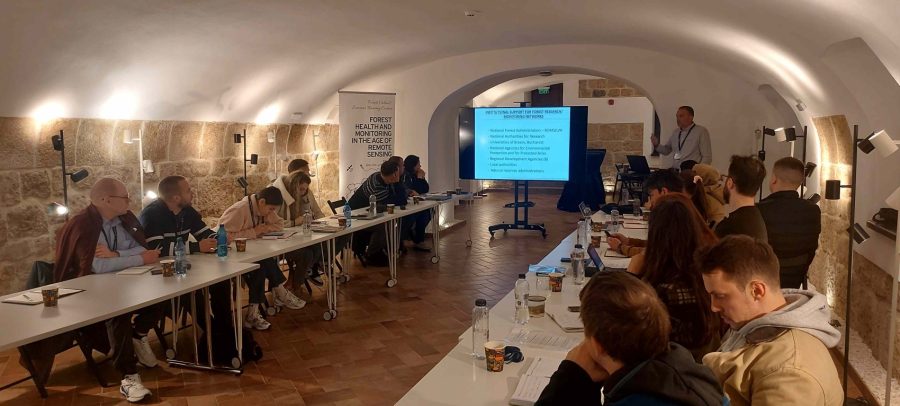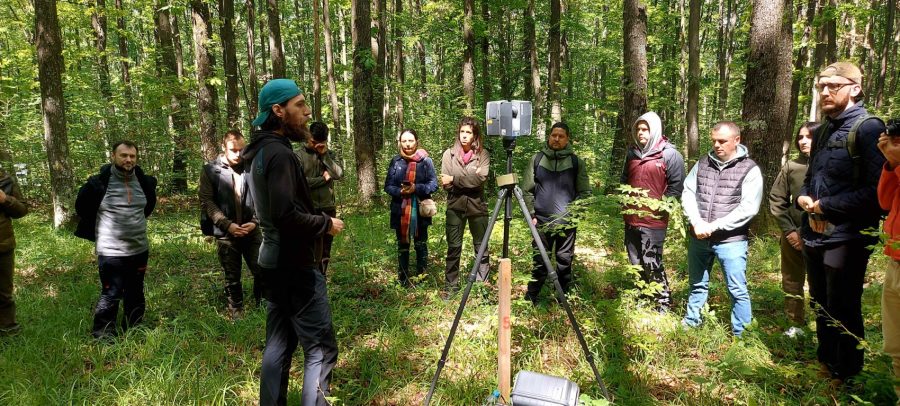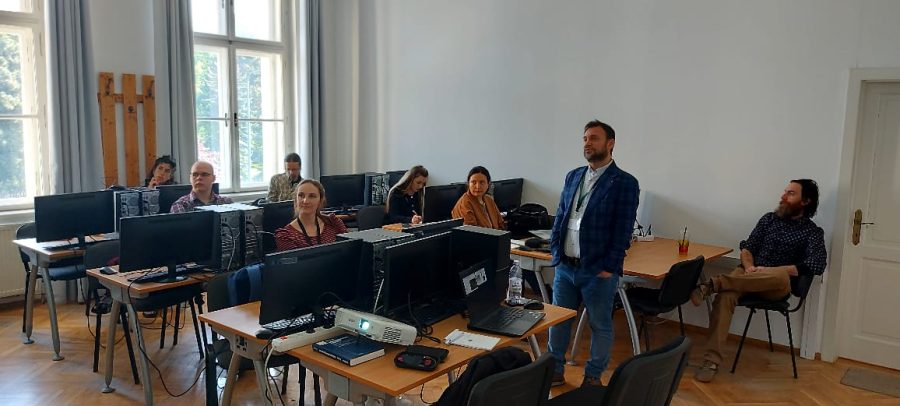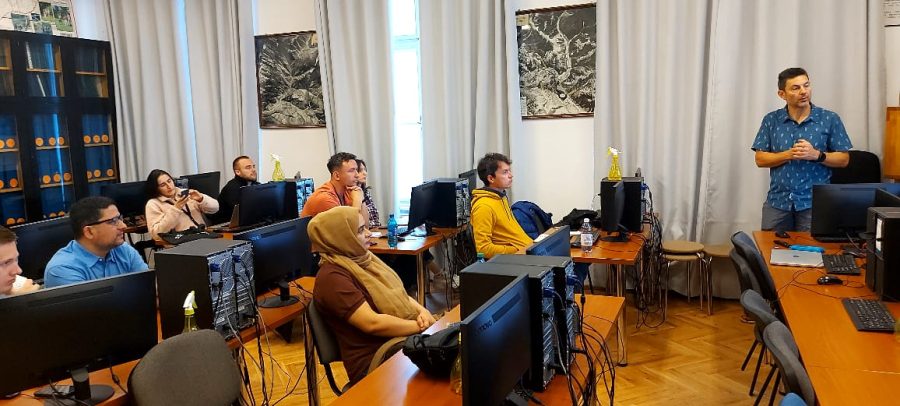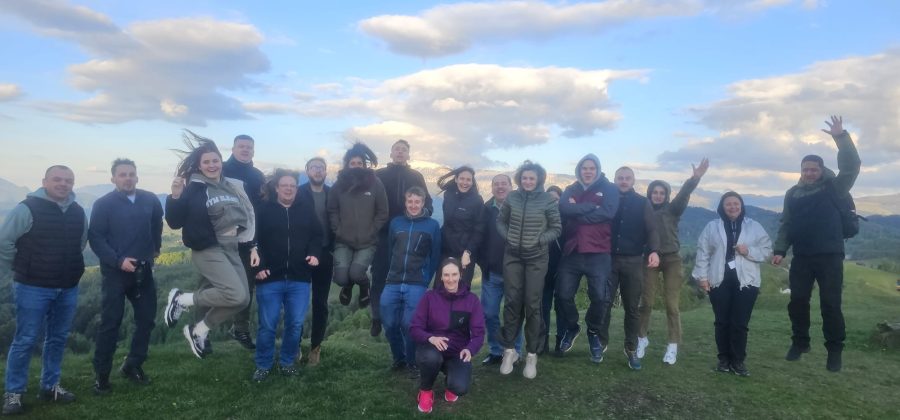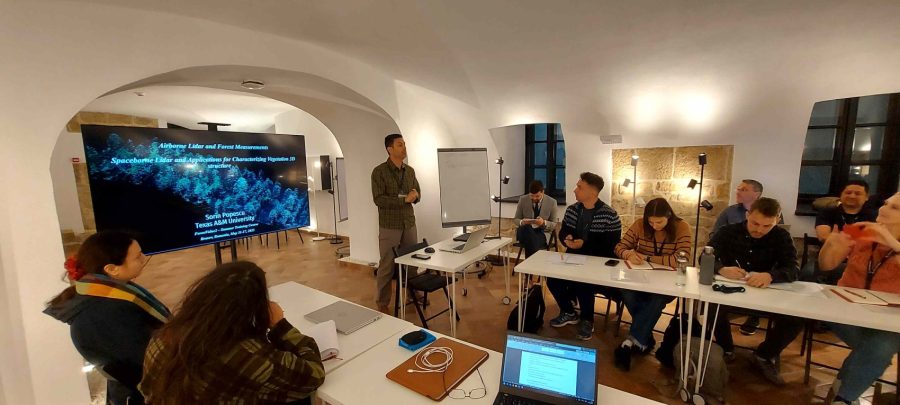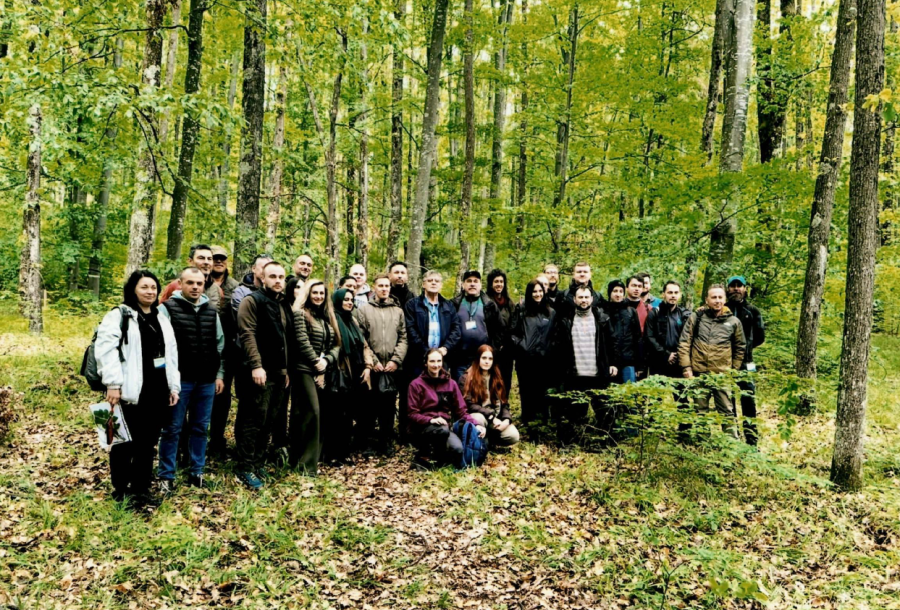Brașov, Romania – May 18, 2025 – The National Institute for Research and Development in Forestry (INCDS) “Marin Drăcea” proudly announces the successful conclusion of its first International Summer School, held under the ForestValue2.
Themed “Forest Health and Monitoring in the Age of Remote Sensing” the event took place from May 11 to 18, 2025, in Brașov, Romania, bringing together 20 early-stage researchers from across Europe. Participants were from EU13 countries such as Poland, Croatia, the Czech Republic, Lithuania and Estonia, as well as Finland, the Republic of Moldova, and Ukraine. The group was united by a shared focus on modern technologies for forest monitoring and sustainable health assessment.
Hands-On Learning Meets Cutting-Edge Science
The Summer School opened with a series of foundational sessions and expert presentations aimed at enhancing skills in forest monitoring and resource management. The curriculum covered a wide range of topics including climate-related risk assessments, the development of local adaptation strategies tailored for forest managers, and essential methods for collecting, analyzing, and validating forest data. Emphasis was placed on applying these insights to practical forest management scenarios.
One of the program’s key highlights was training in advanced remote sensing tools.
Participants were introduced to Earth Observation data, Terrestrial Laser Scanning (TLS), Aerial Laser Scanning (ALS), Synthetic Aperture Radar (SAR), and Unmanned Aerial Vehicles (UAVs). These theoretical lessons served as a foundation for hands-on field exercises later in the week, including monitoring practices within the ICP Forests Level I and II networks and at Long-Term Ecological Research (LTER) sites.
International Collaboration and Expert Guidance
This training initiative was made possible by the full support of the ForestValue2 through Work Package 6, led by INCDS “Marin Drăcea.” Additional technical support, including the provision of high-performance workstations and specialized software, was generously provided by the Transilvania University of Brașov, Faculty of Silviculture and Forest Exploitation.
Participants benefitted from lectures delivered by internationally recognized experts in remote sensing and forest monitoring. These included Prof. Dr. Sorin Popescu from Texas A&M University in the United States, Prof. Dr. Mihai Andrei Tănase from the Spanish National Research Council (CSIC) and Dr. Ihor Buksha from the Ukrainian Research Institute of Forestry and Forest Melioration. Their contributions enriched the scientific value of the course and provided insights into leading global research and practical applications.
Specialized Learning Tracks
To offer a more personalized educational experience, the program allowed participants to choose from three thematic tracks according to their interests.
- seven attendees selected the Terrestrial and Aerial Laser Scanning (TLS/ALS) track,
- six focused on Radar applications in forest monitoring,
- seven chose LIDAR-based analysis and interpretation. This structure enabled in-depth exploration of specific technologies relevant to each participant’s research goals.
Diversity and Field Experience
The Summer School hosted a diverse cohort, with a gender distribution of 55 percent male and 45 percent female. This diversity contributed to a dynamic exchange of ideas and collaborative energy throughout the week.
Field visits took place in Zărnești, Săcele, and a nearby private forest district. These excursions offered participants the chance to apply 3D terrestrial laser scanning techniques and conduct in-situ forest measurements. This practical component complemented the theoretical content and ensured a comprehensive learning experience.
Strengthening Cross-Border Cooperation
A significant milestone during the program was the formal signing of a Cooperation Agreement between INCDS “Marin Drăcea” of Romania and the Ukrainian Research Institute of Forestry and Forest Melioration named after G. M. Vysotskyi (URIFFM). This agreement establishes a framework for future collaboration across a broad range of areas including sustainable forest management, forest response to global climate change, integrated approaches to water and ecosystem conservation, biodiversity protection, genetic research, pest management, monitoring of forest ecosystem conditions, and the use of GIS and remote sensing technologies. It also covers forest management planning, data collection, knowledge exchange, research in wood energy, and the development of forest bioproducts and biomaterials.
Looking Ahead
At the conclusion of the course, each participant received a certificate recognizing their full participation in both the theoretical and practical components of the program. The Summer School closed with a final working session, summarizing key learnings and outlining opportunities for continued research and collaboration.
The ForestValue2 Summer School stands as a significant step forward in the advancement of forest science, strengthening of international partnerships, and promotion of innovation in Europe’s forest-based bioeconomy.
